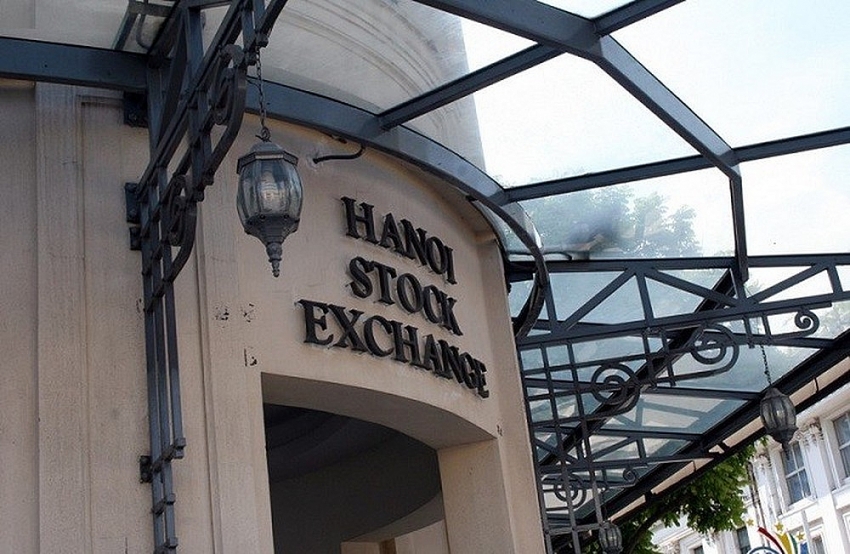Attracting more overseas investors on stock market by NVDRs
 |
| There are different options for attracting more overseas investors to the stock market, including non-voting depository receipts (NVDRs). Photo: Hanoi Stock Exchange |
The Vietnamese government is exploring different options to attract more overseas investors to its capital market, including the application of non-voting shares and on-voting depository receipts.
At a recent meeting with the Korean Financial Investment Association, Deputy Prime Minister Vuong Dinh Hue talked about non-voting shares that will soon be on offer. Non-voting depository receipts (NVDRs), popular in Thailand’s stock market, are also considered a possible option. This issue was brought to the discussion at the Vietnam Business Forum 2019 in Hanoi, as experts and investors agreed that they are a solution to the problems on foreign ownership limits (FOL), and also preventing overseas firms from abusing their voting rights.
Both NVDRs and non-voting shares have gained traction in recent years, as they supposedly allow investors to join major Vietnamese companies that have already reached their FOL. The non-voting route provides overseas players with the same financial benefits of ordinary shareholders from dividends, to right issues and warrants. The only exception is that these investors will not have the right to vote on company decisions.
NVDRs and non-voting shares also help Vietnamese companies raise capital from foreign investors, without having to give up their voting rights or dilute the number of outstanding shares. Firms that operate in conditional sectors, such as retail or real estate, might also get a chance to reach investors abroad.
Most importantly, these options are part of Vietnam’s quest to make its equity market more accessible to international investors – an important aspect of gaining the long-awaited emerging market status from the MSCI. This year, Vietnam once again missed the boat as the annual MSCI review did not include the country in its highly touted listing. The MSCI Emerging Markets Index is used to measure equity market performance in global emerging markets.
 |
| Experts expected that the upcoming amended law will guarantee the better regulatory framework for restructuring and further development of Vietnamese stock market. Photo: Kitamura Shu, senior representative of Japan International Cooperation Agency (JICA) in Vietnam |
“Although it has been expected that Vietnam enters into the upper classification in the annual MSCI’s reviewing process this year, it was concluded that Vietnam would stay the same status. This fact suggests that Vietnamese market still has challenges to be tackled going forward being verified as the “emerging market”, Kitamura Shu, senior representative of Japan International Cooperation Agency (JICA) in Vietnam told VIR.
The JICA’s senior representative also expressed a positive outlook on Vietnamese prime minister’s Decision No.242 issued in February 2019, which provides a midterm roadmap for the market restructuring, and is considered the strong commitment of the government. The Decision includes a set of policies for the goal of making the market better: improving the legal basis, strengthening regulators’ capacity for supervision and enforcement, improving the market structure by reorganizing the stock exchanges (establishment of Vietnam Stock Exchange), enhancing the role of professional associations, diversifying investors, upgrading quality of products, and so on.
However, challenges still colour the landscape. The reality is that despite regulations such as Decree No.60/2015/ND-CP dated on June 26, 2015 on implementing the Law on Securities, non-Vietnamese investors still complain about the long list of restrictions that bar them from joining the fast-growing market. In fact, out of 376 companies listed on the Ho Chi Minh City Stock Exchange, only 25 have no FOL restriction, three have limited foreign-owned shares ranging from 51 to 70 per cent, 23 have caps of less than 51 per cent, 317 are capped at 49 per cent, and eight are capped at 30 per cent.
“We have discussed introducing NVDRs in Vietnam since 2010”, said Phan Duc Hieu, deputy director of the Central Institute for Economic Management, “If other neighbouring countries have shown success through using this instrument, Vietnam should also follow suit,” Hieu emphasised that there is no perfect solution for scrapping the FOL, even in developed nations. “Besides NVDRs, steps should be taken in a wide range of fields, such as liberalising laws and regulations relating to the equity market and legal framework, reviewing the voting rights, to name a few,” Hieu said.
In Japan and Malaysia, non-voting shares are counted as ordinary shares until the company has reached its FOL. In Thailand, NVDRs are issued by the Thai NVDR Co., Ltd, a subsidiary wholly-owned by The Stock Exchange of Thailand. Similar to Vietnam, a number of countries have an extensive FOL system in place – bank stocks in Thailand, for example, are capped at 25 per cent FOL, compared to Vietnam at 30 per cent.
In April 2019, JICA and State Securities Commission (SSC) launched a new technical cooperation on “Project for Capacity Building on Improving Fairness and Transparency of Vietnamese Equity Market” to support the abovementioned initiatives of the Government of Vietnam in restructuring the equity market. JICA also states that the cases of stock markets in Thailand, Japan or the Philippines could be good examples for Vietnam to learn.
Tran Thi Hong Ha, deputy director at the Market Development Department of the State Securities Commission, said there are challenges in lack of legal frameworks and confusion over voting rights of issuers, among others.
“We believe the upcoming revised draft of the Securities Law should start to address this. We may limit the number of NVDRs to 15 per cent of ordinary shares, and NVDR holders might still attend shareholder meetings – just without conducting any voting,” Ha said
"It is highly expected that this upcoming amended law will guarantee the better regulatory framework for restructuring and further development of the market," Shu also stressed.
What the stars mean:
★ Poor ★ ★ Promising ★★★ Good ★★★★ Very good ★★★★★ Exceptional
Related Contents
Latest News
More News
- SSC steps up engagement with FTSE Russell on market reforms (February 09, 2026 | 17:33)
- IFC considers $50m trade finance guarantee facility for Nam A Bank (February 09, 2026 | 17:28)
- Hoa Phat Agricultural Development debuts shares on HSX (February 06, 2026 | 14:00)
- Vietcap’s VAD 2026 draws strong global investor turnout (February 06, 2026 | 13:30)
- New rules ease foreign access to Vietnam equities (February 05, 2026 | 17:29)
- 0.1 per cent tax proposed on each transfer of digital assets (February 05, 2026 | 17:27)
- Ministry of Finance tightens policy delivery at start of year (February 05, 2026 | 17:26)
- Vietnam steps up market reforms as FTSE Russell reviews upgrade progress (February 05, 2026 | 17:20)
- 2025 profits mixed amid strong energy and farming results (February 05, 2026 | 17:18)
- Cashless payments hit 28 times GDP in 2025 (February 04, 2026 | 18:09)

 Tag:
Tag:


























 Mobile Version
Mobile Version